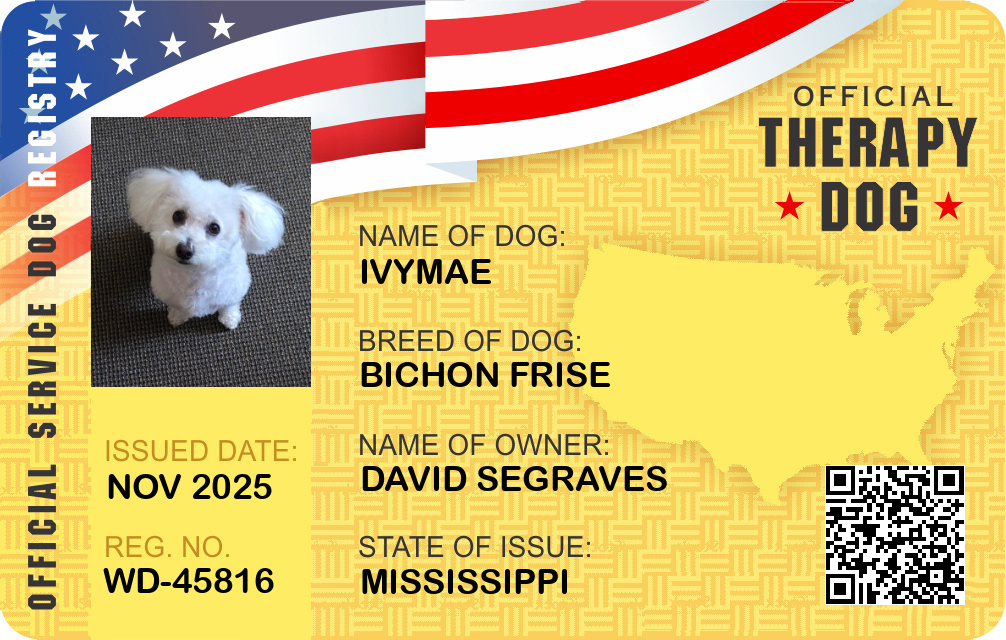Idaho Emotional Support Animal Laws

Overview of ESAs and Legal Definitions in Idaho
Understanding emotional support animal (ESA) laws in Idaho involves recognizing the role and definition of ESAs legally, as well as how they fit into existing state and federal frameworks.
What is an Emotional Support Animal?
An Emotional Support Animal (ESA) is typically a pet that provides therapeutic support to individuals suffering from mental health issues or emotional disabilities. Unlike service animals, ESAs do not require specialized training to perform tasks related to a person’s disability. Their primary role is to offer comfort and alleviate symptoms through companionship. In the state of Idaho, like in many parts of the U.S., ESAs can be any animal species, although dogs and cats are most common.
How ESAs Differ from Service Animals
Service animals, as defined by both the Americans with Disabilities Act (ADA) and Idaho state laws, are specifically trained to perform tasks for the benefit of individuals with disabilities, such as guiding people who are blind or alerting those who are deaf. ESAs, on the other hand, lack this task-specific training and are recognized primarily for their ability to provide emotional relief. Due to these differences, ESAs do not enjoy the same breadth of public access rights afforded to service animals under the ADA.
Key Federal Laws Affecting ESAs (e.g., FHA, ACAA)
Federal regulations significantly influence the rights and responsibilities surrounding ESAs. The Fair Housing Act (FHA) protects ESA owners by requiring housing providers to make reasonable accommodations for individuals with valid ESA documentation, even in properties with no-pet policies. The Air Carrier Access Act (ACAA) previously allowed ESAs to travel freely with owners on airplanes; however, as of 2021, the U.S. Department of Transportation permits airlines to classify ESAs as pets, thereby potentially imposing fees and restrictions. These federal regulations apply in tandem with any state-specific laws applicable in Idaho.
State-Specific ESA Laws in Idaho
Idaho’s specific legislation regarding ESAs is limited, often relying on broader federal laws. However, awareness of responsibilities under Idaho codes, as well as the interaction with federal mandates, is critical for ESA owners in the state.
Housing Rights and Responsibilities
In Idaho, the FHA’s accommodation requirements are predominant. Property owners and housing providers need to accommodate ESAs by waiving pet fees and allowing their presence in no-pet housing. However, owners must provide valid ESA documentation, typically a letter from a licensed mental health professional, confirming the necessity due to a mental or emotional condition.
Public Access and Accommodation
Unlike service animals, ESAs do not have a right to accompany their owners in public facilities like restaurants, malls, or hospitals in Idaho. Business owners are not compelled to admit ESAs unless the specific establishment’s policies permit pets. This restriction underscores the importance of understanding the differentiation between service animals and ESAs.
Transportation and Travel Rules
While the ACAA’s modifications affect air travel, Idaho recognizes each carrier's discretion. For other public transport, such as buses or trains, ESAs usually follow the same rules as pets, requiring restraint and carrier confinement, depending on the company's policy.
Employment and Workplace Considerations
Idaho does not require employers to accommodate ESAs in the workplace under the ADA. However, employees may request ESA accommodations under emotional wellness policies, which can be evaluated on a case-by-case basis. Essential to this process is demonstrating that the ESA is crucial for the individual’s mental wellness while ensuring that the accommodation doesn't impose an undue hardship on the employer.
Documentation, Requirements, and Processes in Idaho
Accurate knowledge of necessary documentation and processes is crucial for ESA owners aiming to secure their rights without infringing on regulations.
ESA Letters and Who Can Issue Them
The core requirement for ESA legitimacy is obtaining an ESA letter, typically issued by a licensed mental health professional, such as a psychiatrist, psychologist, or licensed clinical social worker. This letter must stipulate
Register Your Dog Instantly
the mental health diagnosis and the therapeutic value of the animal for the recipient's well-being, following professional assessments.Registration, Certifications, and Common Misconceptions
Contrary to popular belief, there is no legal registry for ESAs federally or in Idaho. Private databases offer certification services, which are often misleading as they hold no legal value. The credibility of an ESA lies solely with the ESA letter from a qualified mental health professional.
Landlord, Business, and Provider Verification Rules
When presenting an ESA letter, housing providers in Idaho can verify its authenticity by contacting the issuing professional but cannot require detailed medical records. Business entities outside housing have no obligation to accommodate or verify ESA documentation under Idaho law.
Rights, Limitations, and Legal Risks
Navigating ESA rights in Idaho involves understanding both the protections provided and the limits inherent in ESA regulations.
Rights ESA Owners Have in Idaho
Owners in Idaho have the right to reasonable accommodations in housing, as long as valid documentation is presented. This encompasses waiving typical pet fees and permitting the animal's presence in no-pet accommodations.
Limits on ESA Protections and Common Restrictions
ESA owners must recognize the limited public access compared to service animals. ESAs cannot access most public areas, nor are they granted permissions typically exclusive to trained service animals. Additionally, housing providers in Idaho can decline accommodations if an ESA poses a health or safety risk to others.
Penalties for Fraud or Misrepresentation
Misrepresenting an ESA as a service animal can attract penalties under Idaho statutes and federal laws. While Idaho does not have explicit penalties for ESA misrepresentation, engaging in such actions can lead to eviction from housing or bans from properties and services, besides potential fines applicable federally.
Practical Guidance for ESA Owners in Idaho
Being well-prepared and proactive can help ESA owners in Idaho enjoy their rights responsibly.
How to Qualify for an ESA Legitimately
To qualify for an ESA in Idaho, individuals should consult with licensed mental health professionals who can evaluate their need based on symptoms of anxiety, depression, PTSD, or other emotional disorders. An authentic ESA letter can then be issued, signifying legitimate need.
How to Talk to Landlords, Airlines, and Employers
When discussing ESAs with landlords or employers, transparency and preparedness are vital. Provide the ESA letter upon request, and remain informed about both your rights and landlords' concerns regarding potential animal-related damages or disturbances. For airlines, refer to each company’s specific policy on ESAs and be ready to adhere to any new rules, such as secured confinement during travel.
Tips for Avoiding Scams and Legal Problems
- Always obtain ESA documentation from licensed mental health professionals.
- Avoid paying for ESA registrations or certifications from third-party websites that claim legal status.
- Be well-versed in distinguishing between ESA rights versus service animal rights to prevent misrepresentation.
Summary of ESA Laws in Idaho
- ESAs provide emotional support and are distinguished from service animals, both legally and functionally.
- Federal laws like the FHA offer protection in housing, while Idaho has minimal ESA-specific legislation.
- No public access is required for ESAs in Idaho beyond housing accommodations.
- ESA letters must be issued by a licensed mental health professional, with fraud in representation leading to potential eviction or service refusals.
- Documentation should be presented clearly and ethically, with an understanding of both rights and limitations.
- Always engage directly with professionals for ESA qualification to avoid scams and ensure compliance with legal standards.
These guidelines and legal frameworks help support ESA owners in Idaho, ensuring lawful enjoyment of their rights and responsibilities while fostering informed and respectful interaction with the greater community.











